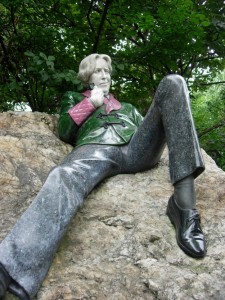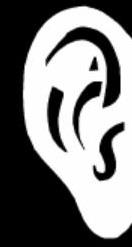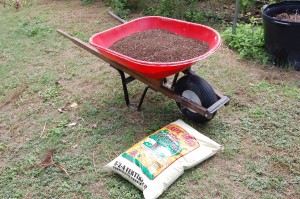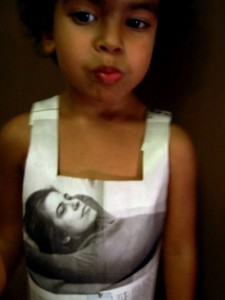 This poem operates on my tenderest muscle tissues as harpoon and actual cautery, both. It functions as a critical emendation of T.E. Hulme’s somewhat shrill cry, “It is essential to prove that beauty may be in small, dry things.” Oh, the poem is certainly not roomy–and it is by no means damp, but it adds heat to what is small and dry.
This poem operates on my tenderest muscle tissues as harpoon and actual cautery, both. It functions as a critical emendation of T.E. Hulme’s somewhat shrill cry, “It is essential to prove that beauty may be in small, dry things.” Oh, the poem is certainly not roomy–and it is by no means damp, but it adds heat to what is small and dry.
The Difficult Farm is never glib, never chary, but these eleven pellucid couplets, in their radical recognition of this one talking man, especially forbid unseriousness, either on the level of form or affect. This quality of seriousness is not, never, to be confused with humorlessness: there is some certain revel here; Heather Christle isn’t coy or cute but she is canny (one example: she has identified this man among several while avoiding the mistake of identifying with him). But I dare you only to laugh at this talking man and not to feel deep shame of the kind you’d feel if you laughed, just laughed, at the foppery of your own grandfather. Or rather, Heather Christle dares you, I should think.
ONE OF SEVERAL TALKING MEN
Because my head is a magnet for bullets
I am spending the day indoors. First
I admired the topiary for several hours
and when my eyes began to ache I rang
for lunch. Lunch arrived with injunctions.
I considered my feet. I did not consider
my altitude. Because I stuffed myself
into the reliquary, I am finding movement
difficult. Luckily, I would not dream
of dancing in this outfit. You must be
a foreign exchange student. Allow me
to make an observation. We live beneath
a frugal moon, and only in her bad light
do our women seem consumptive.
Though what do I know. I am, moreover,
a senatorial moment, and if you don’t
forget me, I may do it myself. You could
conceivably think I’ve never known love,
but I suspect that in the war years, when nurses
bandaged my wounds with repetitive flair,
there existed between us if not affection,
at least a sense that the subject could arise.
See?
And for your Heather Christle Week Hump Day reminder: BUY now here; attempt to takeaway from the giveaways (+ find out when HC is reading near you) here.

 From “The Critic as Artist”:
From “The Critic as Artist”: A few months back, I talked to a painter and animator friend about craft, technique, and composition, with an ear toward what we could learn from each other’s genre. She had recently made a list of all the physical motifs that appear in her work, or in some cases her head and her life, and she read it to me. A motif, as I understand it, is different than a symbol, a metaphor, or a theme in that it simply refers to anything that recurs in a work. It doesn’t have to stand in for something else. It simply gains power and resonance through repetition, brings different parts of a composition into conversation, or provides a kind of unity to the whole.
A few months back, I talked to a painter and animator friend about craft, technique, and composition, with an ear toward what we could learn from each other’s genre. She had recently made a list of all the physical motifs that appear in her work, or in some cases her head and her life, and she read it to me. A motif, as I understand it, is different than a symbol, a metaphor, or a theme in that it simply refers to anything that recurs in a work. It doesn’t have to stand in for something else. It simply gains power and resonance through repetition, brings different parts of a composition into conversation, or provides a kind of unity to the whole. What follows are excerpts from a kind of (scathing) review of a (scathing) review. WCW’s essay, called “A Point for American Criticism,” is directed at Rebecca West, who had published some comments on Ulysses that WCW found wanting in every respect. Sometimes he says “they,” presumably meaning West and her critical cohort. So, from his red wheelbarrow full of glorious vitriol:
What follows are excerpts from a kind of (scathing) review of a (scathing) review. WCW’s essay, called “A Point for American Criticism,” is directed at Rebecca West, who had published some comments on Ulysses that WCW found wanting in every respect. Sometimes he says “they,” presumably meaning West and her critical cohort. So, from his red wheelbarrow full of glorious vitriol: This poem operates on my tenderest muscle tissues as harpoon and actual cautery, both. It functions as a critical emendation of T.E. Hulme’s somewhat shrill cry, “It is essential to prove that beauty may be in small, dry things.” Oh, the poem is certainly not roomy–and it is by no means damp, but it adds heat to what is small and dry.
This poem operates on my tenderest muscle tissues as harpoon and actual cautery, both. It functions as a critical emendation of T.E. Hulme’s somewhat shrill cry, “It is essential to prove that beauty may be in small, dry things.” Oh, the poem is certainly not roomy–and it is by no means damp, but it adds heat to what is small and dry. From title essay of Against Interpretation:
From title essay of Against Interpretation: I’m not about to tell you, except for this: Justin Taylor is very dear to me, and I to him. He even dedicated his–wait for it–chapbook to me. No joke. Some days, we are engaged to be married. We’ll have an early-morning wedding, family only, with a luncheon of cold meats and fowls following. But you don’t know me too well, either, so none of that info should really affect what I’m soliciting from you.
I’m not about to tell you, except for this: Justin Taylor is very dear to me, and I to him. He even dedicated his–wait for it–chapbook to me. No joke. Some days, we are engaged to be married. We’ll have an early-morning wedding, family only, with a luncheon of cold meats and fowls following. But you don’t know me too well, either, so none of that info should really affect what I’m soliciting from you. This may be weak for mean week, but of late, after catching up with an old friend, I’ve been thinking about college majors and their relationship to what we write. Most people I meet now assume I was an English major, but I was history. Here’s the mildly mean part–I sometimes feel slightly, unjustifiably superior to writers who were English majors–it’s as if I mastered (or, I guess, bachelored) a whole nuther thing first, and they didn’t.
This may be weak for mean week, but of late, after catching up with an old friend, I’ve been thinking about college majors and their relationship to what we write. Most people I meet now assume I was an English major, but I was history. Here’s the mildly mean part–I sometimes feel slightly, unjustifiably superior to writers who were English majors–it’s as if I mastered (or, I guess, bachelored) a whole nuther thing first, and they didn’t.